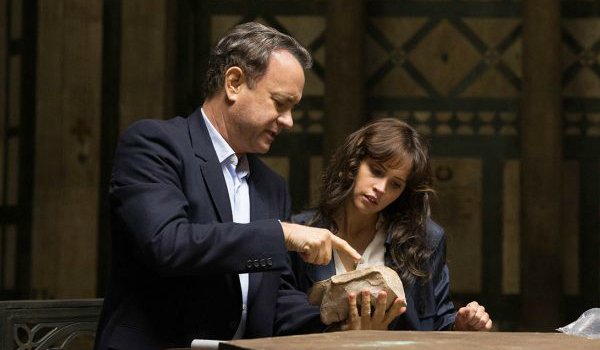Inferno Ending: Why Dan Brown Was OK With The Movie's Big Change

The following story contains spoilers for Inferno, both Dan Brown's book and the Ron Howard movie on which it is based. Stop reading now if you don't want to get into the ending of Brown's latest story.
Harvard symbologist Robert Langdon is back in action this weekend when Inferno hits theaters, and it reunites Tom Hanks with Ron Howard for the third time. Langdon and Dr. Sienna Brooks (Felicity Jones) are racing the clock to unearth a man-made plague that threatens half of the planet's population... and the way the movie handles the resolution is VERY different from the way it's concluded in the book. STOP reading now, again, if you don't want to know.
In the book, Langdon fails to prevent the virus from being released. But he learns, through the World Health Organization, that it's a vector virus, meaning that it will only trigger DNA modification to cause sterility in one-third of our planet's population. It's a grim, but realistic, ending to the book, and one that the movie jettisons. Ron Howard opts for a happy ending where Tom Hanks and his team reach the bomb and stop it from exploding. Problem solved. During an exclusive press event in Florence, Italy, I was able to ask Dan Brown about the change, and why he allowed it, and he told me:
Anytime you're going to adapt a novel into a movie, a movie that is not 25 hours long, some things are going to have to be simplified. I know that the novel had a subtle, ambiguous ending. This was much more direct, right to the point of it. [But] I'm very lucky. I'm working with great filmmakers and I can just sort of sit back and know that I'm in good hands. Also, my expertise is not movies. I write novels.... I saw the first draft and said, 'Hey, the ending is different. And they said, 'Yep.' And that was pretty much the conversation.
By this point, Dan Brown sounds like he trusts his filmmaking collaborators. And to their credit, Ron Howard and Tom Hanks were largely faithful in their adaptations of The Da Vinci Code and Angels & Demons (though a few exciting moments ended up on the cutting room floor). Howard's thoughts on the matter suggest that Dan Brown's ending wasn't as cinematic as he had hoped, and that while it fit the book, he needs to be more focused -- as the film's director -- in delivering a satisfying movie-going experience. Here's Ron Howard telling me why they changed the ending of Inferno from the book to the movie:
So, which one worked better? Go see Inferno in theaters this weekend, then tell us in the comments below. The movie's already cleaning up overseas, and got off to a mild start in the States on Thursday night but is expected to win the weekend. Inferno stars Tom Hanks, Felicity Jones, Omar Sy and Ben Foster.
CINEMABLEND NEWSLETTER
Your Daily Blend of Entertainment News

Sean O’Connell is a journalist and CinemaBlend’s Managing Editor. Having been with the site since 2011, Sean interviewed myriad directors, actors and producers, and created ReelBlend, which he proudly cohosts with Jake Hamilton and Kevin McCarthy. And he's the author of RELEASE THE SNYDER CUT, the Spider-Man history book WITH GREAT POWER, and an upcoming book about Bruce Willis.
Most Popular






